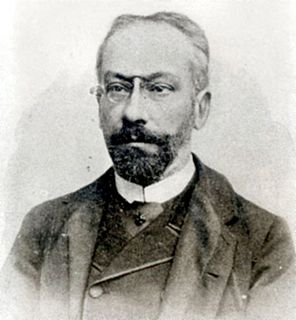Related Research Articles

The Liberal Party was one of the two major political parties in the United Kingdom with the opposing Conservative Party in the 19th and early 20th centuries. The party arose from an alliance of Whigs and free trade–supporting Peelites and the reformist Radicals in the 1850s. By the end of the 19th century, it had formed four governments under William Gladstone. Despite being divided over the issue of Irish Home Rule, the party returned to government in 1905 and then won a landslide victory in the following year's general election.

The Quebec Liberal Party is a centre-right provincial political party in Quebec. It has been independent of the federal Liberal Party of Canada since 1955. The QLP has always been associated with the colour red; each of their main opponents in different eras have been generally associated with the colour blue.
Social liberalism also known as New liberalism in the United Kingdom modern liberalism in the United States, Left liberalism in Germany and Progressive liberalism in Spanish-speaking countries, is a political philosophy and variety of liberalism that endorses a social market economy within an individualist economy and the expansion of civil and political rights. Under social liberalism, the common good is viewed as harmonious with the freedom of the individual.
The Conservative Party of Quebec was a political party in Quebec, Canada, from 1867 until 1936, when it merged with members of the Action libérale nationale to form the Union Nationale.
This article aims to give a historical outline of liberalism in Germany. The liberal parties dealt with in the timeline below are, largely, those which received sufficient support at one time or another to have been represented in parliament. Not all parties so included, however, necessarily labeled themselves "liberal". The sign ⇒ denotes another party in that scheme.
This article gives information on liberalism worldwide. It is an overview of parties that adhere to some form of liberalism and is therefore a list of liberal parties around the world.
This article gives an overview of liberalism in Belgium. It is limited to liberal parties with substantial support, mainly proved by having had a representation in parliament. The sign ⇒ denotes another party in that scheme. For inclusion in this scheme it is not necessary that parties labeled themselves as a liberal party.
This article gives an overview of liberalism and radicalism in Denmark. It is limited to liberal and radical egalitarian parties with substantial support, mainly proved by having had a representation in the parliament. The sign ⇒ denotes another party in that scheme. For inclusion in this scheme it isn't necessary so that parties labeled themselves as a liberal party.
This article gives an overview of liberalism and radicalism in Bulgaria. It is limited to liberal and radical parties with substantial support, mainly proved by having had a representation in parliament. The sign ⇒ denotes another party in that scheme. For inclusion in this scheme it is not necessary that parties label themselves as a liberal party.
This article gives an overview of liberalism in the Czech lands. It is limited to liberal parties with substantial support, mainly proved by having had a representation in parliament. The sign ⇒ denotes another party in that scheme. For inclusion in this scheme it is not necessary that parties label themselves as a liberal party.
Radicalism was a historical political movement within liberalism during the late 18th and early 19th centuries and a precursor to social liberalism. Its identified radicals were proponents of democratic reform in what subsequently became the parliamentary Radicals in the United Kingdom.
The Liberal Party was a Belgian political party that existed from 1846 until 1961, when it became the Party for Freedom and Progress, Partij voor Vrijheid en Vooruitgang/Parti de la Liberté et du Progrès or PVV-PLP, under the leadership of Omer Vanaudenhove.
The Belgian Labour Party or Belgian Workers' Party was the first major socialist party in Belgium. Founded in 1885, the party was officially disbanded in 1940 and superseded by the Belgian Socialist Party in 1945.
The Moderates or Moderate Republicans, pejoratively labeled Opportunist Republicans, were a French political group active in the late 19th century during the Third French Republic. The leaders of the group included Adolphe Thiers, Jules Ferry, Jules Grévy, Henri Wallon and René Waldeck-Rousseau.
John Fitzmaurice, was an administrator, academic and writer. He was an author of numerous books and articles on politics, concentrating on party politics and elections. He was an official of the European Commission and a lecturer at the Université Libre de Bruxelles.
The Progressive Republicans were a parliamentary group in France active during the late 19th century during the French Third Republic.

António José Enes, commonly known as António Enes, was a Portuguese politician and writer.

The Belgian strikes of 1886, occasionally known as the social revolt of 1886, was a violent period of industrial strikes and riots in Belgium from 18 to 29 March 1886 and an important moment in Belgium's 19th-century history. The strike or labour revolt was provoked by social inequalities in Belgian society and has compared to the peasant jacqueries of the Middle Ages.
References
- ↑ Witte E., Craeybeckx J., Meynen A., Political History of Belgium: From 1830 Onwards, Asp / Vubpress / Upa, 2009, p.81
- ↑ Fitzmaurice, J., The Politics of Belgium: A Unique Federalism, C. Hurst & Co. Publishers, 1996, p. 28
- ↑ Chlepner, B.S., Cent Ans d'Histoire Sociale, Bruxelles, éd. de l'ULB, 1956
- ↑ Fitzmaurice, J., The Politics of Belgium: A Unique Federalism, C. Hurst & Co. Publishers, 1996, p. 28